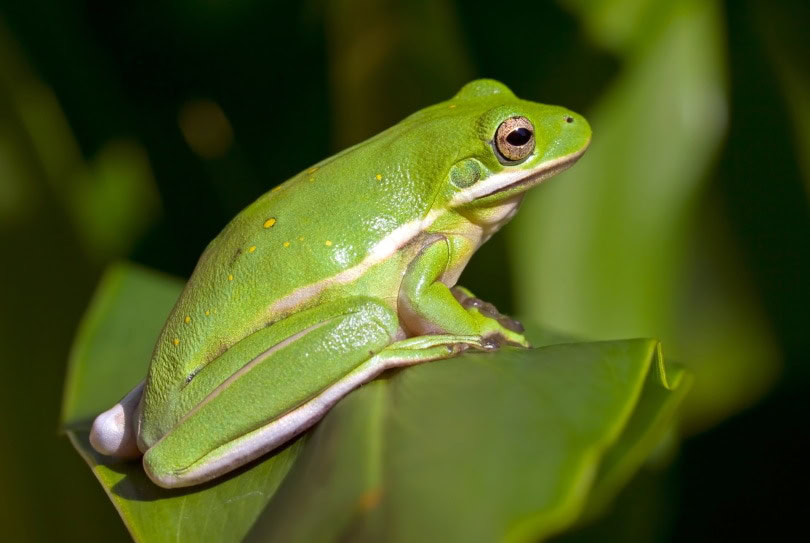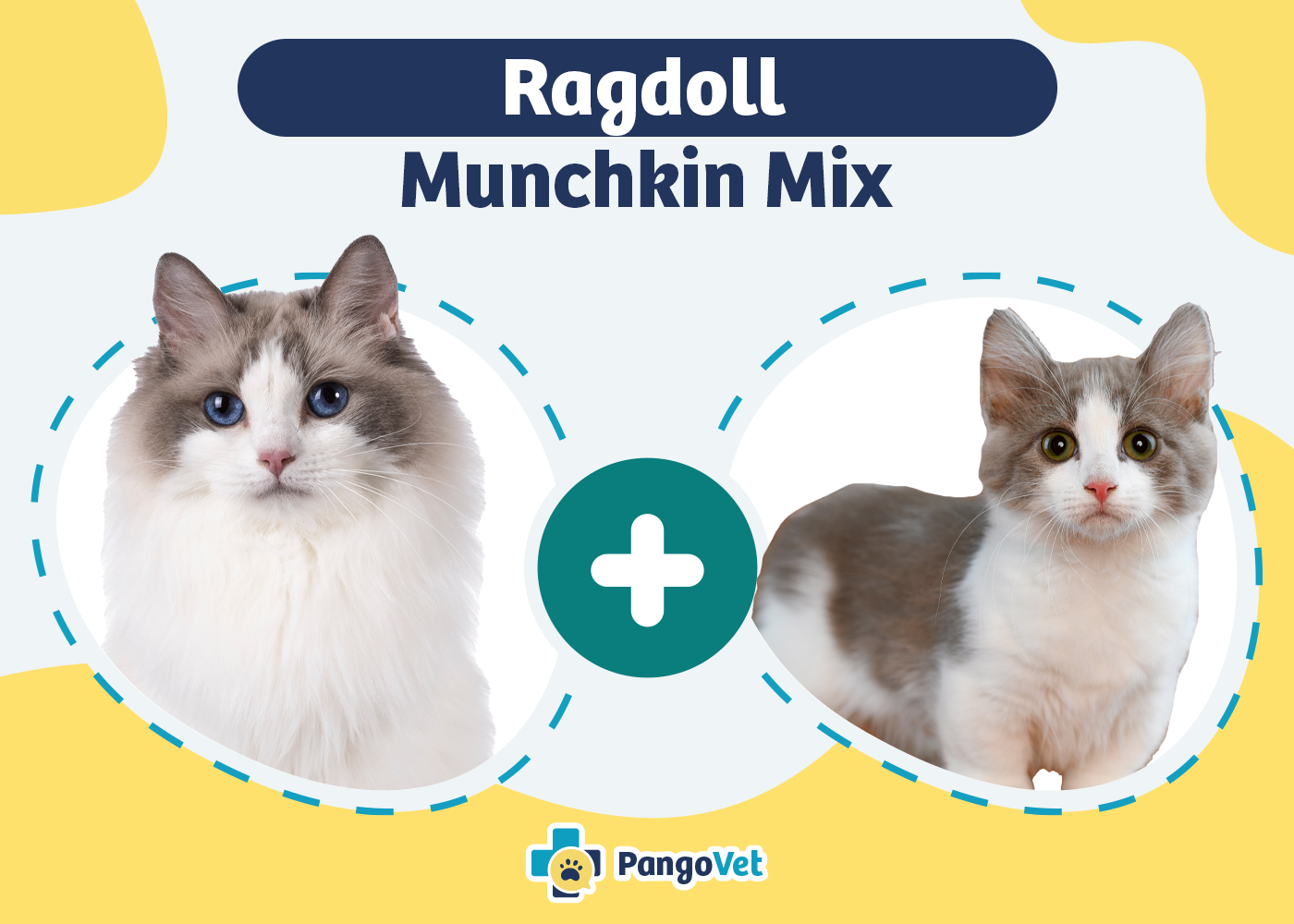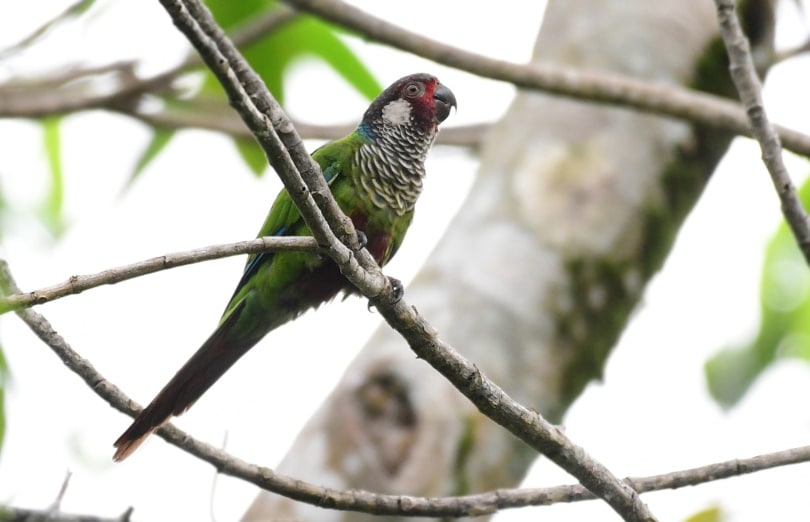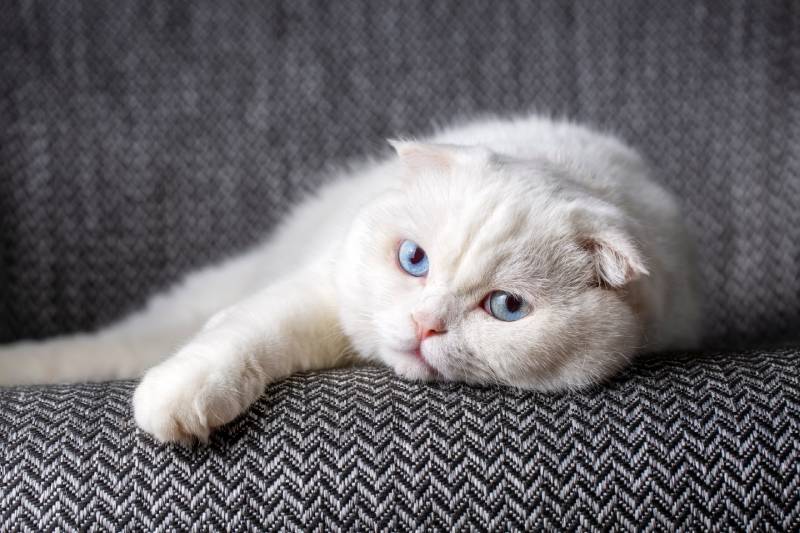Click to Skip Ahead
The American Green Tree Frog is a popular pet due to its hardy nature and bright green color. They are not good pets for frequent handling, but they are interesting to observe. These little green frogs live throughout the United States and spend most of their time in the wild in trees.
If you have considered a frog as a pet, the American Green Tree Frog is ideal. Continue reading to learn more about their behavior, diet, and habitat requirements.

Quick Facts About American Green Tree Frogs
| Species Name | Hyla cinerea |
| Family | Hylidae |
| Care Level | Low maintenance |
| Temperature | 70°–75° Fahrenheit |
| Temperament | Timid, vocal, nocturnal |
| Color Form | Bright to dark green, greyish-green |
| Lifespan | 2–5 years |
| Size | 1–2.5 inches |
| Diet | Insects, small invertebrates |
| Minimum Tank Size | 10 gallons |
| Tank Set-Up | Humid (50%–60%during the day, 80%–100% at night); Light not needed |
| Compatibility | Can live with the same species |
American Green Tree Frog Overview
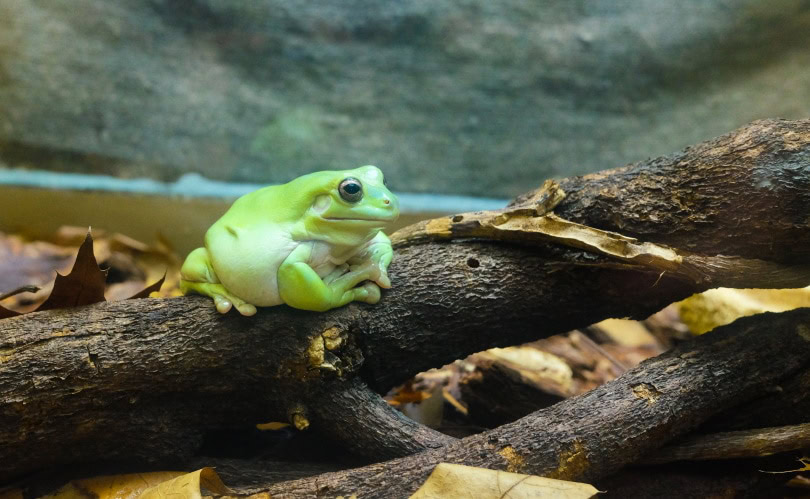
The American Green Tree Frog is very common in the United States, especially in the hot and humid southern states. It is the state amphibian of Georgia and Louisiana. Green tree frogs are also common pets and can be found in many pet stores nationwide.
These tiny green frogs have loud voices. They are recognizable by their loud, rapid, nocturnal calls. Instead of croaking like many other frogs, the American Green Tree Frog makes a distinctive barking sound. They can bark more than 70 times per minute! They use different variations of this call to attract mates, let other frogs know about possible danger, or announce that rain is coming.
As its name implies, the American Green Tree Frog spends most of its time in the trees. They also like to climb the stalks of marsh grasses and other water plants since they need a body of water nearby for breeding.
They are nocturnal and do most of their calling and hunting at night, which is important to know if you plan on keeping them as pets. Their calls will keep you awake at night if they are too close to where you sleep!
How Much Do American Green Tree Frogs Cost?
American Green Tree Frogs are a common species in pet stores. On average, they cost between $10 and $15 each. Generally, a male frog will be slightly smaller than a female, although it can be difficult to tell. Pet store employees can provide their best guess, but most will not guarantee the sex of your frog.
Typical Behavior & Temperament
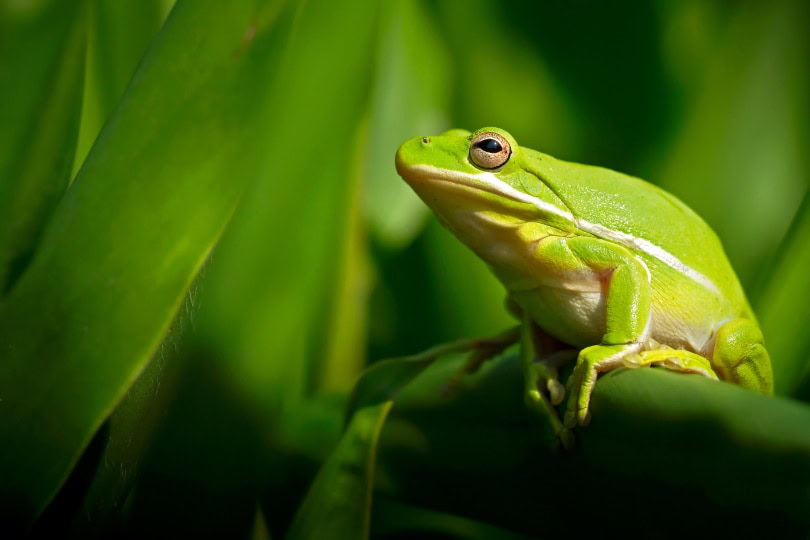
The American Green Tree Frog is an arboreal species; they spend most of their time in trees or climbing up tall marsh plants. Therefore, you must have a setup that allows them to do this. They will bark loudly at night, even in captivity.
They do not like to be handled frequently and are rather shy. Handling them too often can harm their health as it can damage their thin, delicate skin. The best way to keep them healthy and happy is to leave them alone and observe them from afar.
Appearance & Varieties
The American Green Tree Frog is usually bright or dark green, but the color can fade to a grayish-green. Their color changes based on what they are doing. If they are moving around and their temperature is warm, they will be brighter green. When they are resting and cool, their color will fade to olive green.
Many have a white or yellow stripe running from their mouth to their rear. Others may have yellow spotting on their backs. The undersides of the American Green Tree Frog are white or light yellow.
The skin of an American Green Tree Frog is smooth, but the males have wrinkles around their throats where the vocal pouch is located. The males are also smaller than the females. Both males and females have long toes that are ideal for climbing.
How to Take Care of American Green Tree Frogs
Habitat, Tank Conditions & Setup
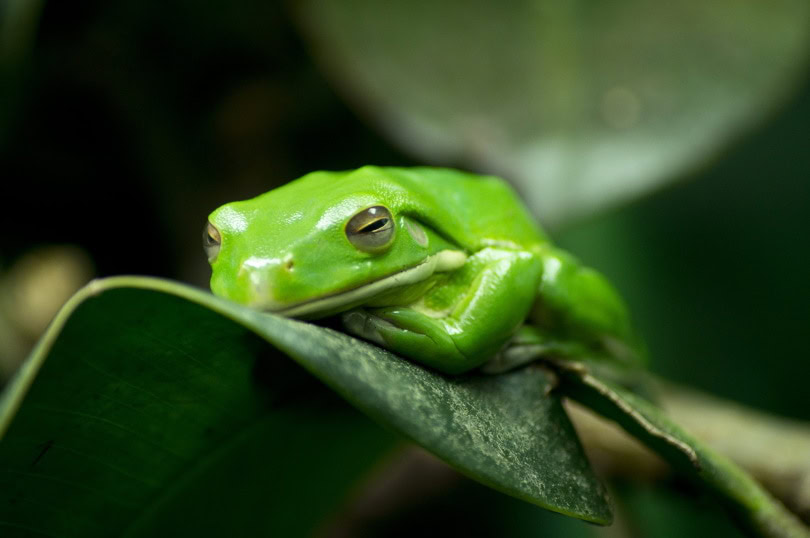
Many consider the American Green Tree Frog a low-maintenance pet, and they are correct. They prefer to be left alone and don’t like to be handled. Therefore, if you set up the tank properly and clean it frequently, your frog will be happy and healthy. Here are a few things you need to do to set up an excellent habitat for your American Green Tree Frog.
Tank
You should have a 10-gallon glass tank with a tightly fitting screen lid, at minimum. The tank can be larger to give your frog or frogs room to climb and move around.
Plants
You will need plenty of plants, branches, and other materials for your tree frogs. They spend most of their time climbing and observing their environment. Fake and real plants are both good choices, as are pieces of wood to climb and suction-cupped platforms attached to the tank. If you are using real plants, they must survive in a very humid environment.
Bedding
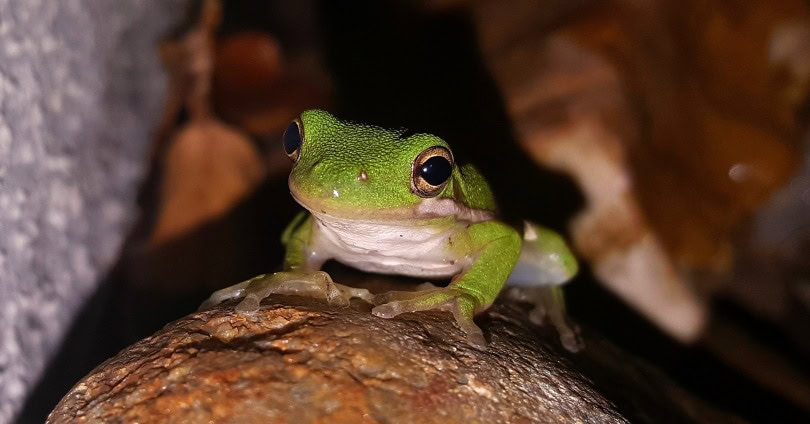
Moss, bark, and mulch are the best bedding for your American Green Tree Frogs. They hold moisture and help keep the humidity levels high. Gravel and rocks will not keep the tank humid enough and can be too abrasive for your frog’s sensitive skin.
Temperature
The ideal temperature for American Green Tree Frogs is between 70° and 75° Fahrenheit. It can be a little warmer during the day and cooler at night, although the warmest spot in the tank should not be hotter than 82° Fahrenheit.
Humidity
Humidity is very important to the American Green Tree Frog. It influences their breeding and health. During the day, the humidity should be between 50% and 60%. The frogs typically sleep during this time, so they like a cooler and drier atmosphere.
At night, the humidity should be between 80% and 100%. To help maintain the correct levels, you’ll need a humidity gauge (hygrometer) in the tank. Regular misting with a spray bottle will help keep the humidity high enough, or you can invest in an automatic mister.
Lighting
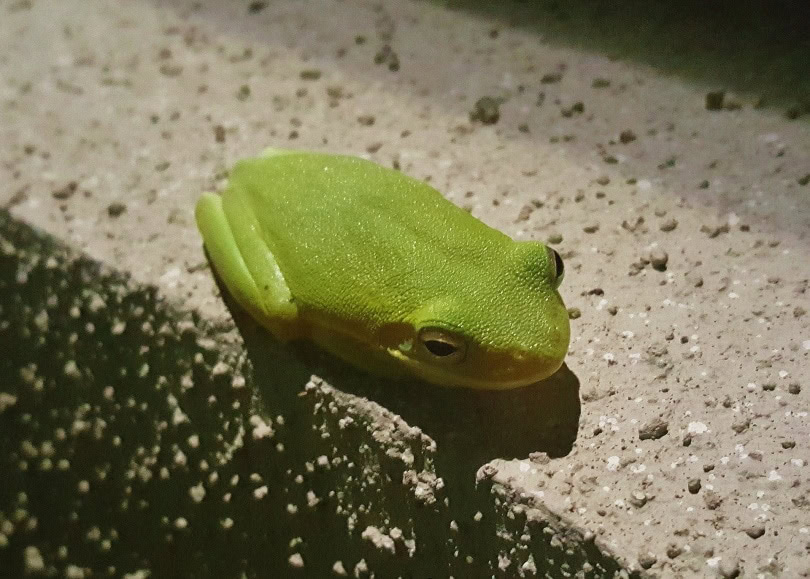
You do not need special lighting for your American Green Tree Frog. They like to sleep during the day and are awake at night. If you want light in their tank at night, you can use a low-powered red or purple bulb to observe the frog without disrupting its regular activities.
Do American Green Tree Frogs Get Along with Other Pets?
American Green Tree Frogs get along fine with each other. However, they should not be kept in the same tank with other amphibians, reptiles, or other pets. They have delicate skin and are small, so it can be dangerous to house them with other animals. They should also be kept in a tank with a secure lid to prevent escape. Other household pets, such as dogs and cats, should not be allowed to get too close to your frogs.
What to Feed Your American Green Tree Frog
In the wild, the American Green Tree Frog eats mosquitos, flies, and other small insects. They also eat crickets, moths, and worms. As pets, most of their diet should be crickets. They should be fed every other day as adults. You should provide your frog with a shallow dish of water as well. Ensure it is not too deep because the tree frog is not a strong swimmer.
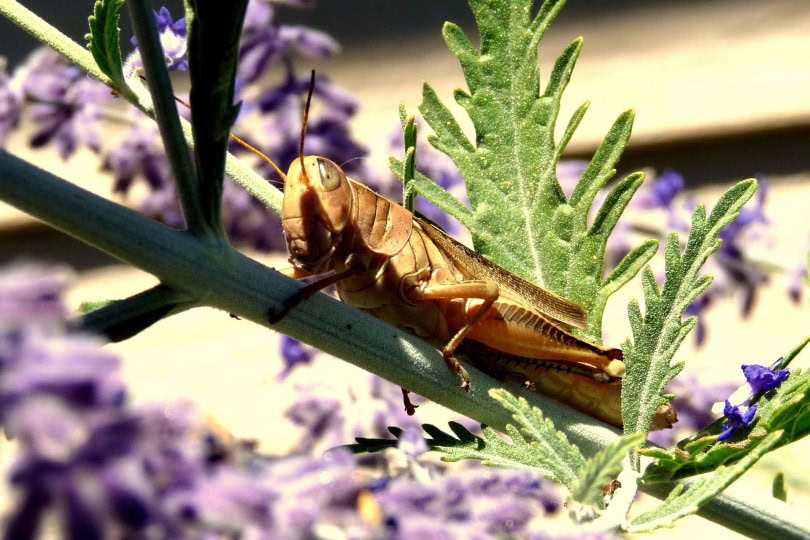
Keeping Your American Green Tree Frog Healthy
The American Green Tree Frog is usually healthy and does not suffer from frequent health conditions. However, maintaining a clean and humid environment is the key to your frog’s continued well-being. You should clean the tank every week and monitor your frog for any signs of ill health.
These signs can include red or swollen eyes, wheezing, lethargy, or lack of appetite, which can indicate an infection or parasite problem. If you suspect they are ill, you need an exotic animal veterinarian to look at your frog.
Breeding
American Green Tree Frogs typically breed from March to October. Their breeding season is impacted by the amount of rainfall and the temperature. Breeding in captivity can be very difficult because of the need for the right humidity and rainfall levels.
Once the male has attracted a female with his call, he will fertilize her eggs. She can lay up to 700 eggs at a time in shallow water! Upon hatching, it takes about a month for the tadpoles to develop into full frogs and about 6 months for them to reach full size.


Are American Green Tree Frogs Suitable For You?
If you are looking for a low-maintenance pet that is better for observing than handling, the American Green Tree Frog is perfect. These small, bright-green, tree-dwelling frogs are fun to watch and listen to. If you can commit to regular tank cleanings and monitoring the temperature and humidity, you will be rewarded with a happy little frog.
Featured Image Credit: LorraineHudgins, Shutterstock
